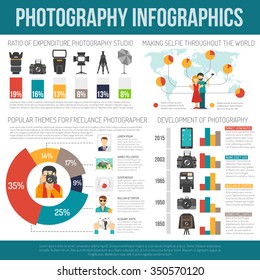Digital Photography Tips For Beginners: Understanding Your Cam Quickly
Digital Photography Tips For Beginners: Understanding Your Cam Quickly
Blog Article
Short Article By-Christian Didriksen
When you first grab your electronic camera, it can really feel overwhelming with all the settings and options offered. You could find yourself questioning how to navigate aperture, shutter speed, and ISO efficiently. Understanding https://myrepublica.nagariknetwork.com/news/travel-photography-tips-and-tricks/ is essential, but there's even more to digital photography than simply technical knowledge. Recognizing structure strategies and illumination problems can raise your photos substantially. So, suppose you could find out basic strategies to boost your skills and begin capturing remarkable photos earlier than you believe? Allow's explore exactly how to change your digital photography journey.
Understanding Electronic Camera Settings
Understanding your camera settings is crucial for catching magnificent images. When you grab your cam, acquaint on your own with the 3 primary setups: aperture, shutter rate, and ISO. Each plays an important role in just how your images end up.
Beginning with aperture, which manages the amount of light entering the lens. A broader aperture (lower f-number) lets in a lot more light and creates a beautiful background blur, perfect for pictures. Conversely, a narrower aperture (greater f-number) maintains even more of the scene in emphasis, suitable for landscapes.
Next, focus on shutter rate. This setting figures out for how long your electronic camera's sensor is exposed to light. A rapid shutter speed ices up motion, which is terrific for activity shots, while a sluggish shutter speed can create magnificent impacts like smooth water in landscapes.
Last but not least, adjust your ISO. This setup influences your video camera's sensitivity to light. A higher ISO works in low-light situations yet can present noise or grain. Aim for the lowest ISO feasible while still accomplishing appropriate direct exposure.
Make-up Strategies
When you're out capturing, composition can make all the difference in how your pictures reverberate with viewers. Beginning by utilizing the rule of thirds; visualize your structure split into 9 equivalent areas with two straight and 2 vertical lines. Position key elements along these lines or at their junctions to create equilibrium and rate of interest.
Next, think about leading lines. These all-natural lines in your scene, like roadways or rivers, attract the viewer's eye right into the picture, directing them through the story you're telling.
Do not ignore mounting; use aspects within your scene, like trees or home windows, to create a structure around your subject, including depth and emphasis.
Likewise, watch on your history. http://esther34gerardo.booklikes.com/post/6570404/exactly-how-to-find-your-unique-design-as-a-photographer cluttered history can sidetrack from your main subject, while an easy one aids it attract attention.
Last but not least, trying out balance and patterns; they can develop a striking image that captures interest.
Learning Lights Issues
Understanding lighting conditions is essential for capturing magnificent photos, as the right light can change a normal scene into something amazing.
Begin by observing all-natural light at various times of the day. Mornings and late afternoons provide the best light, referred to as the golden hour. The soft, cozy tones during these times can improve your photos magnificently.
Don't shy away from overcast days either; diffused light can lessen severe shadows and produce a pleasing effect, specifically for portraits.
Experiment with backlighting by positioning your subject against the light source. This technique can develop a dreamy halo effect and add depth to your photos.
Take notice of your electronic camera settings as well. Readjust the ISO, aperture, and shutter rate to fit the illumination conditions. A higher ISO can aid in low light, yet beware of grain.
Make use of a tripod in darker environments to prevent blur.
Finally, do not neglect man-made illumination. Flash and constant lights can be excellent devices for managing light in difficult conditions.
Conclusion
To conclude, grasping your electronic camera doesn't need to be frustrating. By comprehending your setups, applying structure techniques, and using the power of all-natural light, you'll quickly boost your digital photography skills. Bear in mind, practice makes best, so venture out there and experiment with your newfound understanding. With time and dedication, you'll be capturing magnificent pictures that reflect your distinct point of view. Delight in the journey, and don't fail to remember to have fun while you go to it!
